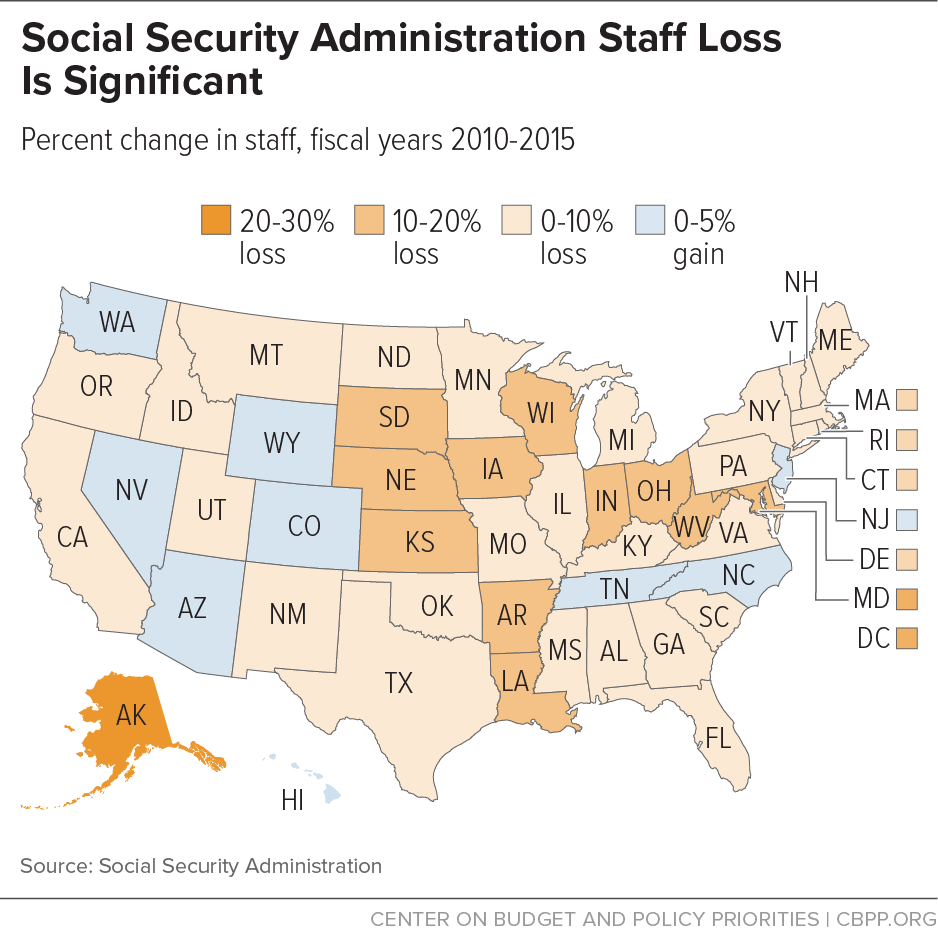BEYOND THE NUMBERS
As baby boomers age into their peak years for retirement and disability, demands on the Social Security Administration (SSA) are reaching all-time highs. Yet policymakers have cut SSA’s core operating budget by 10 percent since 2010, after adjusting for inflation. These cuts hurt SSA’s service to the public in every state, as our new report shows.
Almost all of SSA’s operating budget is spent on staff, and most of SSA’s staff provide direct service to the public. Funding cuts — which have fueled the loss of 6 percent of SSA’s staff nationwide since 2010 — unavoidably result in service gaps. There are fewer people to take appointments, answer phones, and process applications for Social Security’s vital retirement, survivor, and disability benefits. As a result, applicants and beneficiaries must wait longer.
As the map below shows, most states have lost critical SSA staff in recent years. Five — Alaska, Iowa, Kansas, Nebraska, and West Virginia — have lost more than 15 percent of their staff.
Staff shortages have contributed to a record-high disability hearing backlog of over 1 million applicants, and some applicants wait over two years for a final decision. In Hawaii and New Jersey, the number of applicants waiting for a final decision has more than tripled since 2010. In Maryland, North Carolina, Delaware, and the District of Columbia, the average processing time for an appeal is over 21 months.
SSA provides face-to-face service at its network of field offices. There, staff take claims for Social Security and Supplemental Security Income benefits, provide replacement Social Security cards, and process name changes. They offer personalized information for applicants navigating complex decisions about when to retire, and they make decisions about whether a beneficiary can manage his or her own finances. Since policymakers began cutting SSA’s operating budget in 2010, the agency has closed 64 field offices, along with 533 — almost all — of the agency’s mobile offices, reducing access to essential services. New York alone has shuttered 12 field offices, while Pennsylvania has closed half a dozen.
Nearly every American contacts SSA at some point, at the best and worst moments of their lives. They depend on SSA staff to help them when they face a life-altering disability, the death of a spouse or parent, or decisions about financing their retirement years. Policymakers should give SSA enough funding to give Americans the excellent Social Security service they’ve earned.
See our full paper for our 50-state analysis on the effects of the SSA budget cuts.

